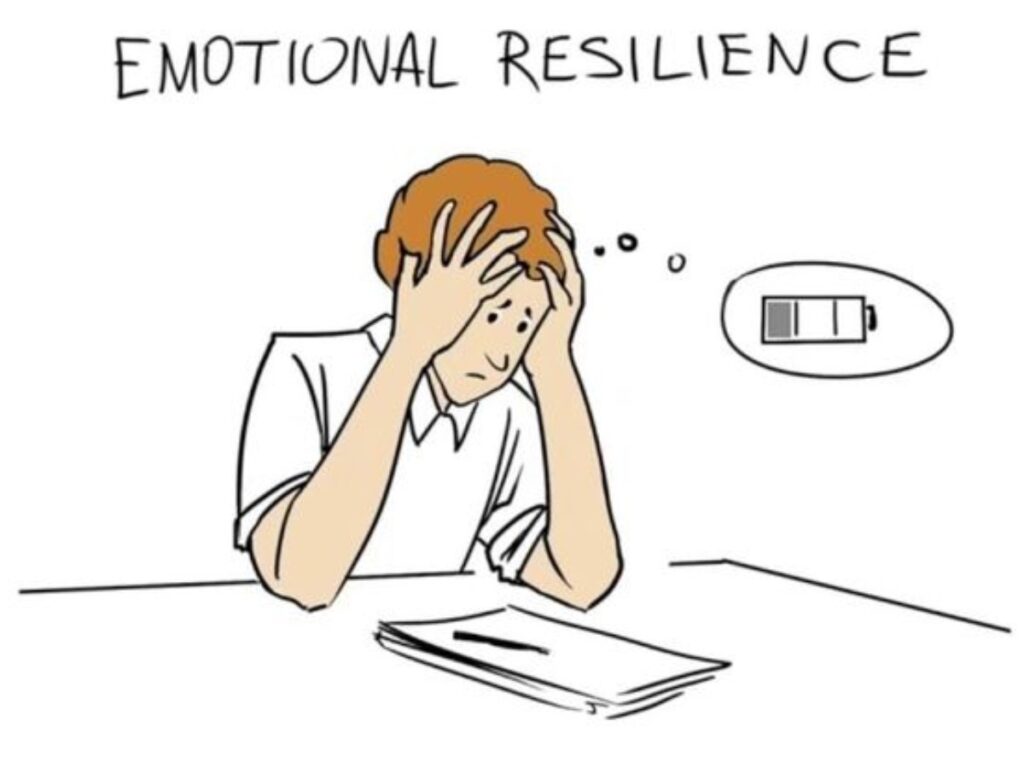
Life can often feel like a whirlwind—deadlines, responsibilities, relationships, and unexpected challenges pulling you in every direction. Emotional resilience is your ability to adapt, bounce back, and maintain mental strength in the face of life’s difficulties. While some individuals seem naturally resilient, the good news is that resilience can be developed with intentional habits and consistent practices.
Here are five practical habits you can adopt to build and maintain emotional resilience, allowing you to better handle stress, recover from setbacks, and maintain emotional balance.
1. Incorporate Mindfulness into Your Daily Routine
The goal of mindfulness is to focus on the here and now without passing judgment. In a fast-paced world full of distractions, mindfulness allows you to slow down, observe your thoughts, and respond rather than react to stress. Incorporating mindfulness into your daily routine can make a profound difference in your emotional health.
Simple Ways to Practice Mindfulness:
- Start with Meditation: Spend 10 minutes a day focusing on your breath. Guided meditation apps like Calm or Headspace are excellent tools for beginners.
- Engage in Breathing Exercises: Try focused deep-breathing exercises to center your thoughts and calm your body.
- Practice Grounding Methods: Methods like the 5-4-3-2-1 technique (observing your senses to connect with the present) can help in moments of stress or anxiety.
By practicing mindfulness, you’re learning to observe your thoughts and emotions without becoming overwhelmed by them. It creates mental clarity and fosters a sense of calm, even when life feels chaotic.
2. Build a Reliable Support Network
Humans are social creatures, and having a network of trusted friends, family members, or support groups can act as a safety net during difficult times. Leaning on others is not a sign of weakness—it’s a smart way to cope with stress and emotional struggles. Connecting with others can offer guidance, validation, and shared experiences, all of which strengthen emotional resilience.
Tips for Strengthening Your Support System:
- Stay Connected: Schedule regular catch-ups with friends or family members, whether virtually or in person.
- Open Up: Share your feelings or concerns with trusted individuals to build trust and shared understanding.
- Join Groups: Support groups—either locally or online—provide a sense of belonging and connection.
- Ask for Assistance: Don’t hesitate to reach out when life feels overwhelming. Support can come in many forms, and it’s okay to seek help.
A dependable support system can ease loneliness, foster hope, and provide practical advice to help you navigate challenges. Don’t underestimate the power of connection.
3. Make Self-Care a Non-Negotiable
Self-care is a key component of emotional resilience. It involves intentionally prioritizing activities that nourish your mental, emotional, and physical health. It’s not just about pampering but about creating space for rest, recovery, and personal well-being. When you make self-care a consistent practice, you’re investing in your ability to cope with stress.
Self-Care Activities You Can Incorporate:
- Regular Physical Activity: Whether you prefer yoga, walking, dancing, or swimming, movement can release tension and boost mood by triggering the release of endorphins.
- Prioritize Rest: Ensure you’re getting enough sleep and taking breaks when necessary. Sleep is vital for emotional regulation.
- Hobbies Matter: Engage in creative or relaxing activities you enjoy, such as painting, reading, gardening, or listening to music.
- Establish Boundaries: Learn to set limits on time and commitments that drain you. “No” can help you preserve your emotional space.
Making time for self-care isn’t selfish; it’s essential for maintaining mental and emotional health. Prioritize your well-being so you can better handle challenges as they arise.
4. Foster Optimism by Practicing Gratitude
A positive mindset can transform your response to challenges. Cultivating optimism allows you to shift focus from problems to opportunities, giving you the emotional strength to cope with difficulties. One proven way to build optimism is by regularly practicing gratitude.
How to Cultivate Gratitude:
- Keep a Gratitude Journal: Every evening, jot down a few things you’re grateful for. They can be simple, such as a warm cup of coffee, or significant moments like achieving a personal goal.
- Communicate Appreciation: Tell friends or family members how much you value them and their presence in your life.
- Reframe Your Challenges: Every obstacle offers a lesson. Learn to find meaning or growth even in the face of difficulty.
Gratitude shifts your attention from what’s lacking to what you already have, creating a positive mindset that strengthens emotional resilience over time. A simple practice like this can help you stay hopeful and grounded, even during adversity.
5. Set Clear, Manageable Goals
Feeling overwhelmed can trigger anxiety and insecurity. One way to counteract this is by setting realistic goals and focusing on smaller, achievable steps. Clear goals provide direction and give you a sense of purpose, which can greatly reduce emotional strain.
Effective Goal-Setting Strategies:
- Break Goals into Steps: Big ambitions can be intimidating. Break them into smaller milestones that feel achievable and celebrate each small success.
- Prioritize Your Tasks: Develop the ability to set priorities for your work and concentrate on doing the most crucial ones first.
- Adapt to Changes: Life rarely goes according to plan. Flexibility is essential—learn to adjust your goals when necessary.
- Focus on What You Control: Sometimes external circumstances are out of your hands. Concentrate on the actions you can take and let go of what you can’t control.
This habit empowers you by giving you structure, clarity, and motivation. It prevents overwhelm by allowing you to focus on small, actionable steps rather than becoming paralyzed by a long list of responsibilities.
Summary
Emotional resilience isn’t about being invincible or never experiencing stress—it’s about learning how to respond to challenges with adaptability, strength, and balance. Adopting these five habits—mindfulness, building strong relationships, prioritizing self-care, practicing gratitude, and setting achievable goals—can help you build the emotional stamina needed to face life’s challenges.
Resilience is a journey, not a destination. Start with one habit at a time and integrate it into your daily life. With small, intentional changes, you can become better equipped to handle stress, build confidence, and navigate life with ease.
And if you find yourself struggling, remember that seeking professional help is a sign of strength. Dr. Neha Gupta, an experienced psychiatrist in Pune, offers personalized mental health care to help you overcome challenges and strengthen your emotional resilience. Don’t wait for emotional struggles to define your life—take the first step toward balance and well-being today



